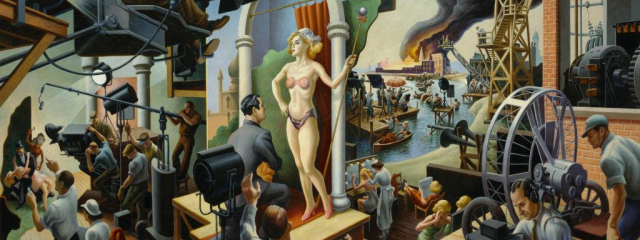Wait, what is that you say, medical people going to art museums as part of their medical meeting experience? Why yes OF COURSE they should get all up close with art because how better to learn about the key capacities and tendencies at play in every interaction in medicine: the capacities and tendencies of oneself, […]Continue Reading
ArchivesCategory: Medical Education
11DecDOTmed: Mixing Medical Futurism with Humanism
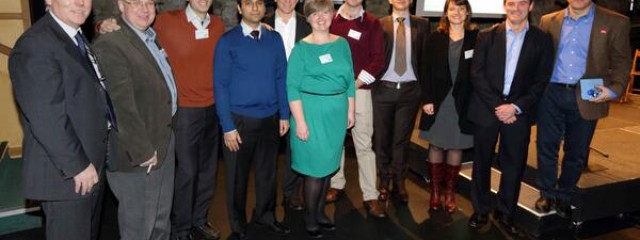
Last week, I was fortunate to present a workshop at the second annual DOTmed, a Dublin-based healthcare innovation conference like no other. DOTmed follows a fierce curiosity on the future of healthcare, with priorities rigorously routed in the innermost realities of the human condition. Organized by Drs. Ronan Kavanagh and Muiris Houston, DOTmed mixed a stiff […]Continue Reading
27JanTalking About Misdiagnosis
It’s been a happy and moving week in my world, full of reconnection with old souls and new kinds of feedback. This is because I finally started telling the truth. My high school alumni magazine was curious about Arts Practica, and, because they were most familiar with the 14-year old, braces-mouthed-nerd who hid out in […]Continue Reading
09JanFresh Eyes

“Let the familiar become strange and the strange familiar — the two rules of creativity.” –Sam Keen, 1991 One of my best collaborators in the work of art-viewing lives with extreme visual impairment. One of the things I appreciate about working with him is the renewed sense of focus on what the work is […]Continue Reading
27NovA Royal Owie: Shame in teaching and learning
I’m at home, recovering from an unexpected surgery. And doing really well (Joy! Relief! Terror. Oh my lucky stars. I live in Boston and have access to great care.) Resting at home has brought the joy of sweet time to consume things, like books, soup, and the company of soup-bearing dear ones. Workout videos bearing […]Continue Reading
25SepWhy do the arts matter to medicine?
Short answer: because creative skills are essential to successful medical practice; they are easily and authentically learned in art. See below for some key studies that inform my opinion that quality clinician attention may be healthcare’s greatest resource, and art has a role in the development of quality attention. Long answer: Watch a video of a panel […]Continue Reading
21AugAre you an art museum educator who works with medical education?
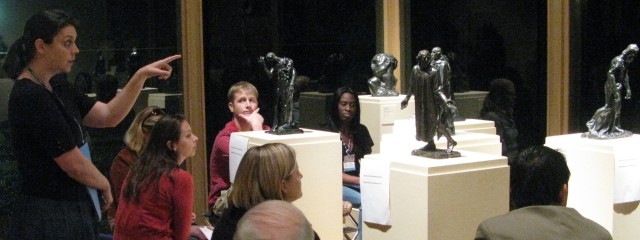
If so, I’d love to hear from you! I’m planning to moderate a plenary on the research produced by collaborations between art museums and medical schools at the Arts Education Partnership National Forum with speakers Irwin Braverman, MD, and Diana Beckmann-Mendez, PhD, RN, FNP-BC. Braverman and Beckmann-Mendez will speak about their research and experiences using art interventions […]Continue Reading
02JunThe difference between saying what you see and deciding what it is
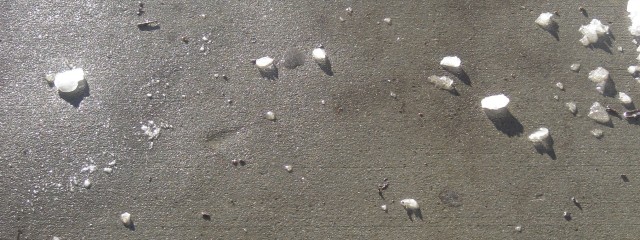
Is big. Is a lapsezone. Sometimes we have to describe what we are not sure we are looking at. It can be tempting to diagnose it while describing, especially if technical parlance is available for some of what we see. Diagnostic word-choice is dangerous decision-making. It can rule things out too early. Description is work. […]Continue Reading
01MayWhy I Love Teaching/Learning Observation
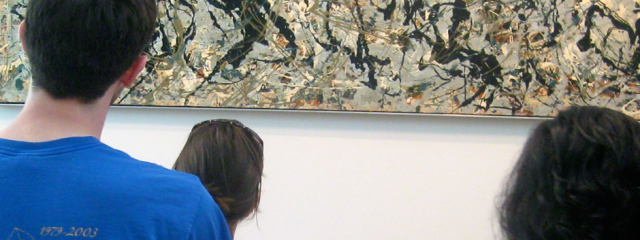
Hi and welcome! I’m happy to have you here. For the most part, this blog is going to be about observation, an arts-based skill, in the context of medicine. Teaching observation as a professional skill is what I have been doing for much of the last ten years. Teaching it, and learning about its genesis and […]Continue Reading

